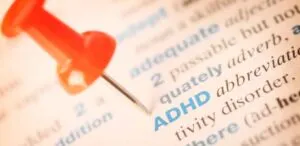Somatic Symptom Disorder:
Somatic symptom disorder (SSD) is a type of mental disorder that is characterized by excessive preoccupation and anxiety about one or more somatic symptoms (physical symptoms such as pain, fatigue, or gastrointestinal issues) that may not have a clear cause. This preoccupation and anxiety can lead to significant distress and impairment in daily functioning.
SSD was previously known as somatoform disorder, but the criteria for diagnosis have changed under the updated classification of the Diagnostic and Statistical Manual of Mental Disorders (DSM-5), and it is now considered a somatic symptom disorder.
People with SSD may go through extensive medical evaluations and treatments to find a cause for their symptoms, but the symptoms are not fully explained by a general medical condition. They may also experience maladaptive thoughts, behaviors, and emotions, such as anxiety, depression, and a high level of health anxiety, which are related to the symptoms.
It’s important to note that SSD is not the same as having a medical condition that causes physical symptoms, but rather a disorder characterized by excessive worry and anxiety about physical symptoms, experiencing distress and impairment in daily functioning can be a result of this.

Is somatic disorder and conversion disorder the same?
Somatic symptom disorder (SSD) and conversion disorder are related, but they are not the same.
Conversion disorder is a form of somatoform disorder, which is a condition in which psychological stress is expressed through physical symptoms. It is characterized by the presence of one or more sensory functions that cannot be explained fully by a general medical condition.
Somatic symptom disorder (SSD), is a condition characterized by excessive preoccupation and anxiety about physical symptoms, which can lead to maladaptive thoughts, behaviors, and emotions, such as anxiety, depression, and a high level of health anxiety, which are related to the symptoms. In summary, conversion disorder is a subtype of somatoform disorder.
If you want to read more about conversion disorder, visit our website here.
What are the symptoms of somatic symptom disorder?
Symptoms of somatic symptom disorder (SSD) can vary depending on the individual, but some common symptoms include:
- Excessive worry and stress over one or more somatic symptoms may not have a clear cause.
- Experiencing significant anxiety about physical symptoms, causing distress and making it hard to carry out daily activities.
- Maladaptive thoughts, behaviors, and emotions related to the symptoms.
- A tendency to seek multiple medical evaluations and treatments for somatic symptoms.
- Symptoms that are not explained by a medical condition or by the effects of a substance.
- Avoidance of activities or situations due to the fear of experiencing symptoms or causing worsening of the symptoms.
- The disproportionate level of attention and focus on the physical symptoms.
- Difficulty in accepting medical explanations for the symptoms
How to diagnose somatic symptom disorder?
The diagnosis of somatic symptom disorder (SSD) is made by a mental health professional, typically a psychiatrist or psychologist, based on a thorough evaluation of the individual’s symptoms and medical history. The psychological health professional may ask about the individual’s symptoms, including the onset, duration, and severity of the symptoms, as well as any associated thoughts, feelings, and behaviors, during the evaluation. They may also ask about the individual’s medical history, including any past medical evaluations and treatments and any current medications or supplements.

The psychological health professional may also conduct a physical examination and may refer the individual for further medical evaluations to rule out any underlying general medical conditions that may be causing the symptoms.
It’s important to note that the diagnosis of SSD requires the exclusion of the symptoms being fully explained by a medical condition or substance. It’s important to seek professional help if you suspect you may have an SSD. A proper diagnosis and treatment can help to reduce symptoms and improve the quality of life.
Treatment for somatic symptom disorders?
Treatment for somatic symptom disorder aims to reduce symptoms and recover normal function. Treatment options for somatic symptom disorder (SSD) include:
- Psychotherapy: The primary treatment for SSD is psychotherapy, specifically a type of therapy called cognitive-behavioral therapy (CBT), which aims to change thoughts and behaviors related to somatic symptoms, reducing anxiety and depression and improving overall functioning.
- Medications: Antidepressant and anti-anxiety medications would be prescribed to help reduce the common symptoms of depression, anxiety, and other emotional difficulties associated with SSD.
- Coordination with medical care: It is important for individuals with SSD to have coordinated care with a general practitioner or specialists to eliminate any underlying medical conditions and to ensure that the individual is not receiving unnecessary medical treatments.
- Mind-body techniques: Yoga, meditation, and relaxation techniques can be valuable in reducing symptoms of anxiety and depression and other physical symptoms such as pain and fatigue.
- Supportive therapy: Supportive therapy, such as support groups, education about somatic symptom disorder, and other resources to assist individuals in coping with symptoms and improving their overall quality of life.
It’s important to note that treating SSD may involve multiple therapies and medications over an extended period of time. The goal of treatment is to help the individual manage their symptoms, reduce their distress, and improve their overall quality of life. A multidisciplinary approach, including coordination with medical care, is essential for proper treatment.

Novus Beginning Psychiatry: Your Path to Health and Wellness Starts Here!
We understand that navigating the complexities of mental health can feel overwhelming, but you don’t have to face it alone. At Novus Beginning Psychiatry, we’re here to support you every step of the way. Whether you’re seeking therapy, medication, or a combination of both, our compassionate professionals are dedicated to helping you find the path to a happier, healthier life.
Our highly skilled psychiatrists are experienced in a wide range of mental health conditions, including anxiety, depression, bipolar disorder, OCD, PTSD, ADHD, autism, and more. We offer evidence-based therapies that have been proven effective in helping individuals overcome their challenges. From cognitive-behavioral therapy (CBT) to couples/family therapy, we utilize the most up-to-date techniques to empower you on your healing journey.
We also recognize that medication is vital in managing certain psychological health conditions. Our team includes Dr. Nibras, who is a board-certified psychiatrist well-versed in medication management. He works closely with you to develop a comprehensive treatment plan, as we believe in the power of personalized care.
So, take the first step towards a brighter future. Contact us today to schedule an appointment. Our friendly staff is ready to assist you in finding a convenient time to meet with our dedicated professionals. Call (832)856-4718 and let us help you take charge of your mental well-being.
Medication Management For Psychiatric Wellness
At Novus Beginning Psychiatry, we’re dedicated to helping you unlock the power of effective medication management. Our team of psychiatrists has years of experience and understands the importance of finding the right balance for your mental health journey. We offer personalized and compassionate care, creating medication plans that are tailored to your unique needs. Our understanding of psychopharmacology allows us to provide the most advanced and evidence-based treatments available.
Our goal is to help you by providing the right medications to enhance your therapy outcomes, reduce your symptoms, and improve your overall well-being. We want to be your trusted partner on the path to a brighter future. Please don’t hesitate to contact us at Novus Beginning Psychiatry to experience the transformative effects of our comprehensive medication management approach.
Who is Dr. Nibras?
Dr. Sohail Nibras is a double board-certified psychiatrist in child, adolescent, and adult psychiatry. He completed his education at Saint Louis University and the American University of Integrative Science. He excels in treatments based on psychiatric care and therapeutic sessions and has experience treating dual psychiatric and substance use disorders. He is an assistant professor at the Menninger Department of Psychiatry and Behavioral Sciences at Baylor College of Medicine in Houston, Texas. He serves as an attending psychiatrist at Texas Children’s Hospital. He trains future psychiatrists and engages in scholarly research projects.
Visit us
Come and visit us at one of our locations in person or meet us via telepsychiatry/online!
We’re here to help in Texas, ready to meet you in person. If you’re unable to make it in person, don’t worry, we’re also available online, so you can meet us easily from the comfort of your own home. Whether you prefer to see us face-to-face or connect with us online, we’re here to assist you every step of the way.
Address in Sugar Land
120 Eldridge Rd Suite D, Sugar Land, TX 77478
Address in Katy
23410 Grand Reserve Drive, Ste. 401 & 402 Katy, Texas 77494



